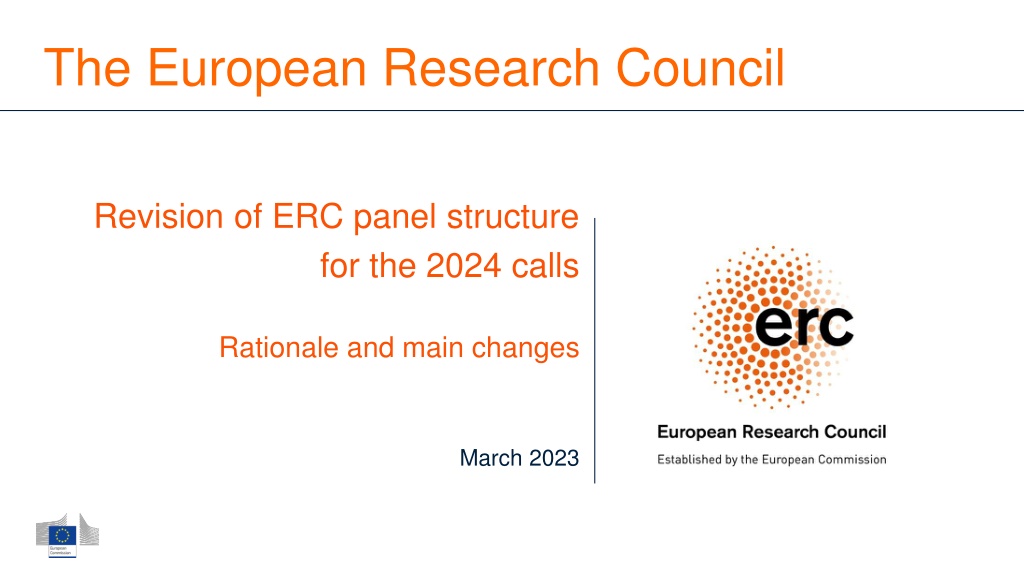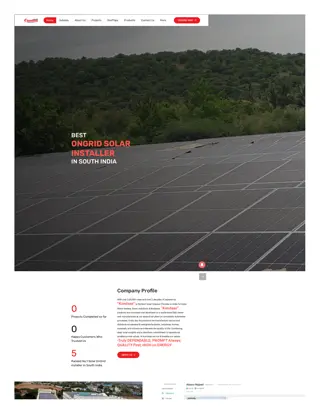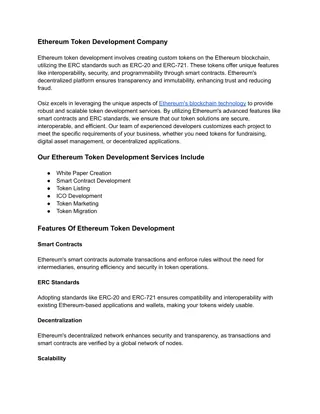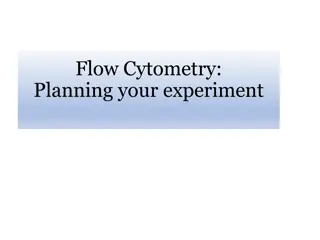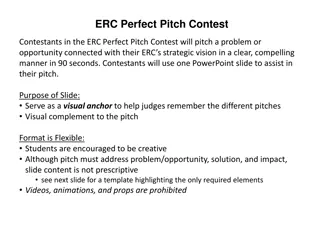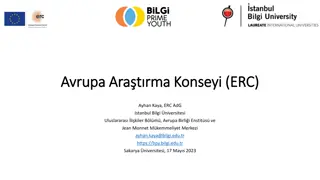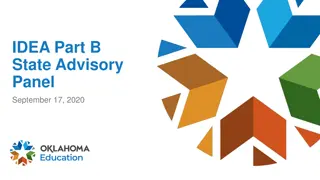Updating ERC Panel Structure for 2024 Calls: Rationale and Main Changes
The European Research Council will revise its panel structure for the 2024 calls to enhance coherence, focus on frontier research, and appreciate interdisciplinarity. The main principles reflect the overarching evaluation policy of the ERC, ensuring a forward-looking approach that evolves with the changing nature of disciplines. The function of the panel structure is to guide applicants without imposing a rigid scientific classification. The revision rationale includes adjustments in Life Sciences, Social Sciences, and Humanities, while the Physical Sciences and Engineering panels remain unchanged to maintain balance. Specific updates in Life Sciences panels LS3 and LS5 aim to attract a broader range of research in cell biology, development, stem cells, regeneration, and behavioral studies. Regular revisions ensure the relevance and adaptability of the ERC panel structure.
Download Presentation

Please find below an Image/Link to download the presentation.
The content on the website is provided AS IS for your information and personal use only. It may not be sold, licensed, or shared on other websites without obtaining consent from the author. Download presentation by click this link. If you encounter any issues during the download, it is possible that the publisher has removed the file from their server.
E N D
Presentation Transcript
The European Research Council Revision of ERC panel structure for the 2024 calls Rationale and main changes March 2023
Main principles of ERC panel structure setup reflect overriding principles of ERC evaluation policy: Coherence ERC covers all fields of research in a whole science approach Forward-looking: Focus on frontier research and emerging scientific areas Evolving nature of disciplines: Regular revision of panel remits Appreciation of interdisciplinarity: Wide breadth of viewpoints within panels 2
Function of panel structure Provide guidance to applicants Not meant to be a complete scientific classification Panel titles, subtitles, descriptors do not reflect priorities Any topic is welcome, regardless of whether it is explicitly stated Proposals can fall in between panels; evaluation will be adapted Panel structure is revised regularly (scientific and/or operational reasons) 3
Rationale for revision Life Sciences: changes in LS3 title and LS5 subtitle/descriptors: make coverage more explicit to encourage applicants Social Sciences and Humanities: addition of a new panel (SH8) to: restore balance between social sciences and humanities coverage limit size of SH3, SH4, SH5 (not targeted by previous revision) Physical Sciences and Engineering: no change all panels are sufficently well defined and balanced 4
Changes - Life Sciences Panel level LS3: new panel title Change from Cellular, developmental and regenerative biology to Cell biology, development, stem cells and regeneration Rationale: the regenerative biology field is smaller than the stem cell field; previous wording may not sufficiently attract the stem cell research community LS5: addition to subtitle Add in humans and all other organisms to specify that the panel covers studies in humans as well as in all other organisms 5
Changes - Life Sciences Descriptor level LS5: additions to descriptors to clarify remit LS5_8: add fields as examples related to cognition ( e.g. sleep, consciousness, addiction ) LS5_9: add fields as examples related to behavioural sciences ( e.g. learning, memory, attention, emotions, speech ) LS5_16: add relevant examples ( e.g. modelling, simulation, brain oscillations, connectomics ) 6
Changes - Social Sciences and Humanities Panel level New panel SH8 Studies of Cultures and Arts combines cultural studies, art history, architecture, music, performing arts, museum studies, cultural heritage and other fields (from SH5) with social anthropology (from SH3) Philosophy (so far split between SH4 and SH5) fully incorporated in SH5 SH3, SH4, SH5 each lose disciplines but remain multidisciplinary: SH3 The Social World and Its Interactions covers sociology, social psychology, education sciences, communication studies SH4 The Human Mind and Its Complexity covers cognitive science, psychology, linguistics SH5 Texts and Concepts covers literary studies, literature, philosophy 7
Changes - Social Sciences and Humanities Descriptor level SH1: better balance between economics, finance, management; attract more applicants from finance and management in addition to economics move law and economics to SH2 SH6: even out granularity between history and archaeology; channel life-science based proposals linked to palaeoanthropology to relevant LS panels ( palaeoanthropology removed from SH6) Further updates in all panels 8
Impact for Applicants New panel structure applicable to all 2024 calls Overriding aim is to engage applicants in all areas of research Publication well ahead of time to allow for preparation Applicants are advised to familiarise themselves with the changes No change in evaluation process linked to this revision 9
Physical Sciences and Engineering PE1 Mathematics PE2 Fundamental Constituents of Matter PE3 Condensed Matter Physics PE4 Physical and Analytical Chemical Sciences PE5 Synthetic Chemistry and Materials PE6 Computer Science and Informatics PE7 Systems and Communication Engineering PE8 Products and Processes Engineering PE9 Universe Sciences PE10 Earth System Science PE11 Materials Engineering Social Sciences and Humanities SH1 Individuals, Markets and Organisations SH2 Institutions, Governance and Legal Systems SH3 The Social World and Its Interactions SH4 The Human Mind and Its Complexity SH5 Texts and Concepts SH6 The Study of the Human Past SH7 Human Mobility, Environment, and Space SH8 Studies of Cultures and Arts Evaluation panel structure (2024 calls) Life Sciences LS1 Molecules of Life: Biological Mechanisms, Structures and Functions LS2 Integrative Biology: From Genes and Genomes to Systems LS3 Cell Biology, Development, Stem Cells and Regeneration LS4 Physiology in Health, Disease and Ageing LS5 Neuroscience and Disorders of the Nervous System LS6 Immunity, Infection and Immunotherapy LS7 Prevention, Diagnosis and Treatment of Human Diseases LS8 Environmental Biology, Ecology and Evolution LS9 Biotechnology and Biosystems Engineering 10
Thank You! More information: erc.europa.eu Follow us on social media @ERC_Research European-Research-Council European Research Council European Research Council
